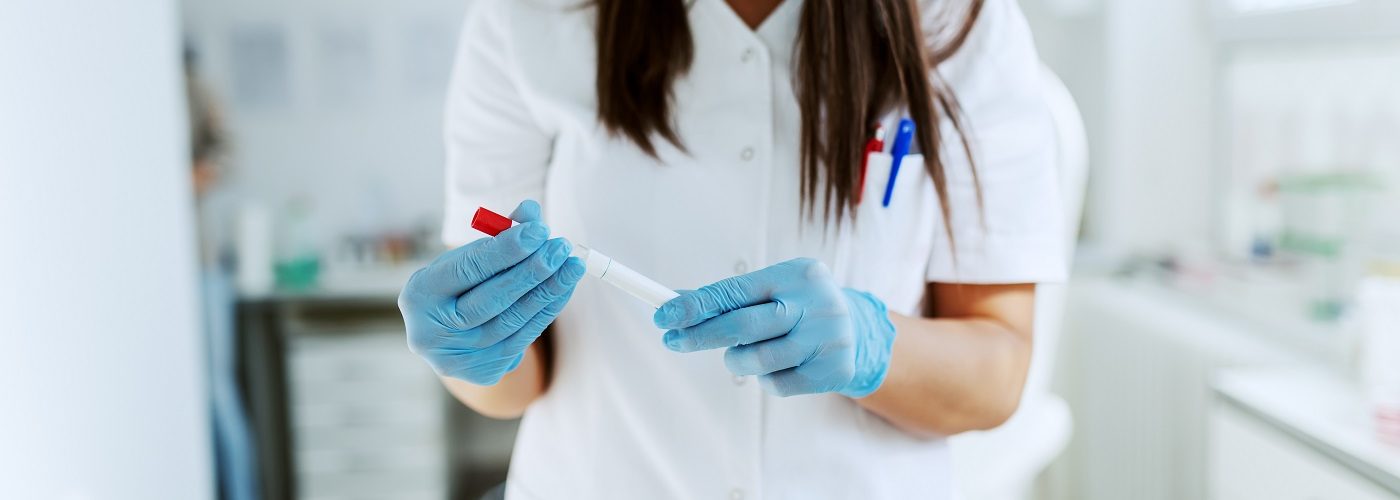
Covid-19 has caused almost 100 million cases and more than 2 million deaths worldwide since it appeared. The United States is the country hardest hit by the pandemic, but Europe is at the centre of the third wave in early 2021.
The truth is, since it started, Covid-19 has continued to raise all kinds of doubts and questions, the vast majority of which focus on its effects, how to prevent it and how best to combat it. The possible link between blood type and susceptibility to the disease has been the subject of study for months, as it would enable the possibility of part of the population becoming infected to be determined.
Along these lines, IVI has recently published a multicentre study that was presented at the latest edition of the ASRM (American Society for Reproductive Medicine) Congress, one of the largest events worldwide in the field of reproductive medicine.
Certain blood type and Rh could protect better
The main conclusion drawn from this study is that patients with O-positive blood group and Rh-positive have greater protection against Covid-19. Dr. Antonio Requena, Medical Director of IVI, explains how the research was carried out: “In the data analysed in our population in the post-confinement period from May to June, with a sample of 6,140 patients for SARS-CoV-2, we found that the incidence of disease (understood as patients who had positive antibodies, either IgM or IgG) was lower in patients with group O, with significant findings that the Rh-negative group was more frequent among those infected, contrary to what had been previously published”.
Studies are still at an early stage
Although the idea that blood type may have prognostic value against Covid-19 is highly relevant, it is true that we are still at a very early stage where it is urgent to determine whether this association is real, as Dr Christopher Latz, co-author of one of the most recent studies on the subject, points out.
Little impact from age or gender
Dr. Antonio Requena points out that, in the sample analysed, the positive rate does not vary significantly with age or gender. “The positive rate does not vary significantly with age and no differences were observed in terms of gender or blood group. However, Rh-negative individuals were found to have a slightly higher risk of infection than Rh-positive individuals. In addition, in areas where the disease is most prevalent, the percentage of IgM-positive people is also high and there is an increased risk of infection when one partner is already positive”.
First studies two decades ago
The first indication of the possible association between blood type and Coronavirus emerged during the SARS-CoV outbreak in 2002. The results of a first study published in 2005 indicated that patients with blood group O had a lower risk of infection than other groups.
In 2020, in a non-peer-reviewed paper, scientists from China reported a similar association between blood group and SARS-CoV-2; after finding that group O was associated with a lower risk of infection, while group A had a higher risk of infection.
None of the research carried out since then has produced conclusive results. In June, scientists from Europe and Australia established in a study a comparison of the genomes of 1,610 patients affected by severe COVID-19 and those of 2,205 healthy blood donors. The researchers found that gene variants in two regions of the human genome were associated with a severe case of the disease and an increased risk of mortality. In addition, individuals with blood group A had up to 45% higher risk of developing severe disease, while individuals with blood group O had a 35% lower risk.
In July 2020, Dr. Latz and colleagues reported that they had found no relationship between blood type and the severity of SARS-CoV-2 (Annals of Hematology), as marked by indicators such as hospitalisation, intubation or death. However, it was observed that Rh-positive individuals were more likely to test positive for COVID-19 than Rh-negative individuals, and that blood groups A or AB had a higher positive rate than group O. Similarly, a non-peer-reviewed study published in April and updated in July, coincides with the study by Dr. Latz. It is observed that Rh-positive individuals and blood group B had a higher rate of SARS-CoV-2 positives than group O.
With this study, IVI has once again positioned itself as a benchmark in research, which is reflected in the research presented at international congresses such as the ASRM. If you want more information IVI’s safety measures against COVID-19, see the section of our website. If you would like to make an appointment with our medical team, we will be happy to help you. You can find a contact form on our website.





Comments are closed here.